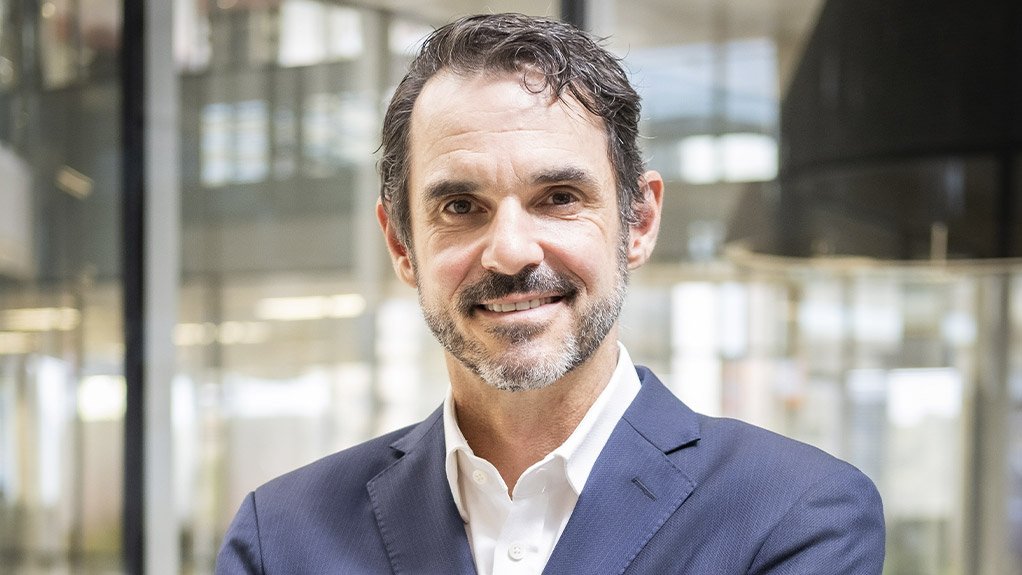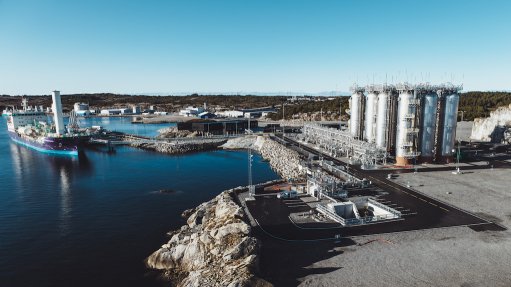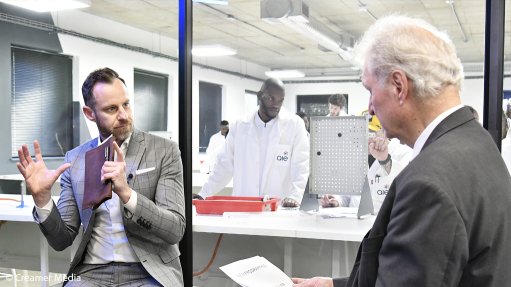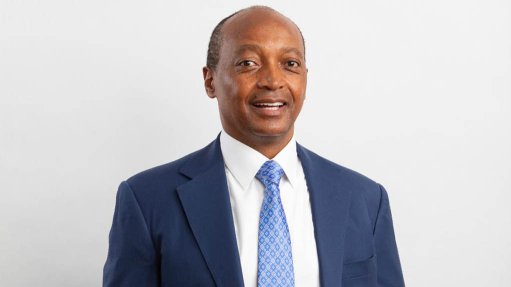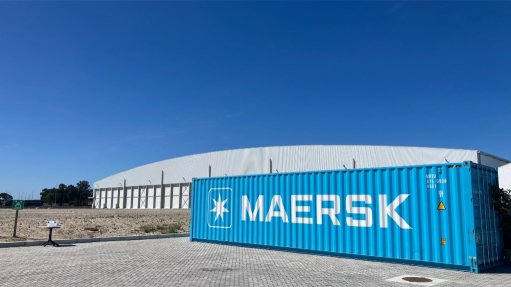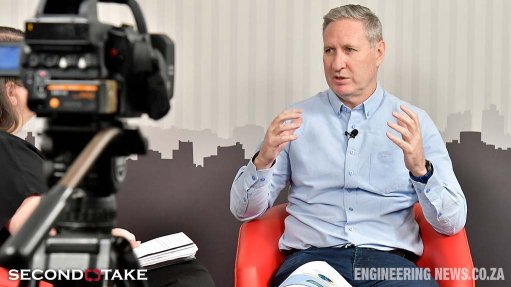Africa’s Financial Markets Forge Ahead Amid Global Uncertainty
This article has been supplied and will be available for a limited time only on this website.
By:Absa's Jeff Gable - Chief Economist, and Anthony Kirui, Head of Global Markets for Africa Regions
Rocky trade relations and troubled economies have unsettled financial markets worldwide, but Africa is positioning itself for success. Absa's Jeff Gable, Chief Economist, and Anthony Kirui, Head of Global Markets for Africa Regions, explore how African countries are laying the foundation for long-term structural transformation, even in the face of global adversity.
Volatility seems to be the only constant in a year marred by seismic shifts in trade policies of the world’s largest economies, alongside geopolitical tensions, a rollback of climate finance, currency instability, and interest rate hikes. Market gurus widely anticipated that emerging economies would bear a disproportionate share of the pain from tightening global liquidity and deepening macroeconomic imbalances – a squeeze that, they warned, could leave policymakers struggling to sustain momentum in implementing reforms.
However, Africa has shown remarkable resilience in the face of this adversity, strengthening its financial architecture while pursuing sustainable development and long-term structural transformation.
According to the Absa African Financial Markets Index (AFMI) – now in its ninth year and produced in partnership with the Official Monetary and Financial Institutions Forum (OMFIF) – progress has been made in strides on the continent, with standout examples in foreign exchange reforms, improved product diversity, and climate change action. Nonetheless, the challenging global environment has tempered some of these gains.
The Index assesses financial market development through the lens of transparency, accessibility, and openness, providing both a benchmark for market infrastructure and an opportunity for policymakers to learn from improvements across Africa. Each of the 29 countries studied is awarded a score to reflect its progress over the past 12 months, determined by relative performance against more than 40 indicators.
The 2025 Index shows that country performance has been mixed, with roughly equal numbers of markets seeing their scores improve, remain unchanged, or decline over the past year. The most notable challenges were a weakening of market depth and a slide in pension fund assets, yet at the same time, considerable progress was made in improving transparency in foreign exchange markets and adopting netting legislation, with Botswana, Lesotho, and Rwanda standing out for sizeable gains in their overall scores. South Africa retained its top position in the overall Index, followed by Mauritius and Uganda in second and third place respectively. It is clear that countries are actively reforming and modernising their financial systems to create more enabling environments for investment, with local markets stepping up to the challenge through tangible policy and structural reforms.
Financial product diversification is taking centre stage
Over the past year, several African countries have introduced new financial products, helping to diversify their markets, attract a broader range of domestic and foreign investors, and reduce dependence on a limited array of financial instruments. After all, diversification is a critical mechanism for building resilience to external shocks. Countries are offering a wider range of products, including Islamic and climate-related finance, which are helping to meet shifting investor preferences and align African markets with global trends in ethical finance.
New instruments introduced over the past year have also placed a strong emphasis on infrastructure. For example, Tanzania issued its first sovereign sukuk bond and launched its first Samia infrastructure bond, both aimed at funding infrastructure and social development projects. Meanwhile, Kenya approved its first asset-backed security to help finance a new sports complex, while also introducing Islamic financial products for the first time this year. These are real milestones in accessing Shariah-compliant capital. In total, 18 AFMI economies now offer environmental, social and governance (ESG) and/or Islamic financial products.
Optimism in FX reforms
Currency stability is critical for sustaining investor confidence and supporting capital flows, and there is clear evidence that countries are increasingly prioritising the strengthening of their financial market fundamentals through bold foreign-exchange (FX) reforms. Even as foreign-reserve coverage came under pressure in several African countries over the past year, evidence suggests that those which addressed long-standing inefficiencies in their FX systems fared noticeably better. Nigeria and Uganda stood out as leaders in this area.
The Central Bank of Nigeria announced major reforms, including unifying multiple FX windows, clearing a US$7 billion backlog, and gradually phasing out fiscal-style interventions that had previously disrupted market operations. The Bank of Uganda likewise rolled out reforms that liberalised its FX market, raised reporting standards, and improved interbank liquidity. While challenges around volatility and liquidity persist in some markets, reforms such as these are pivotal for bolstering market credibility, lowering transaction costs, and enabling smoother cross-border trade.
The continent is showing leadership on climate finance
Attention is also increasingly turning to how Africa can channel finance toward sustainable development. In parts of the world, momentum behind ESG has waned, driven in part by political shifts in the United States that have led to a rollback of climate policies and regulations. Africa is charting a more determined course, advancing climate-focused policies and products that embed ESG principles within financial-market infrastructure.
Four AFMI countries issued green bonds for the first time this year, bringing the total number of issuers to 14. These instruments raise capital for projects that deliver environmental benefits such as clean water and renewable energy. According to the International Energy Agency, Africa holds 60% of the world’s best solar resources and vast wind potential, the development of which can be accelerated through the successful implementation of green investments and financial products.
Another area of progress is in the adoption of climate stress testing – a crucial tool for integrating climate risks into financial decision-making. For example, Ghana introduced climate stress testing to its financial market frameworks, joining eight AFMI other countries already doing so, while South Africa went one step further, conducting its first climate risk stress test on six systemically important banks. It used long-term scenarios to assess both physical and transition risks, with the findings showing that the banking sector is increasingly aware of climate exposures and is broadly resilient.
There is ample cause for optimism about Africa’s economic trajectory. According to the African Development Bank Group, the continent’s economy is projected to expand from 3.3% in 2024 to 3.9% in 2025, reaching 4% by 2026 – outpacing most other regions and comfortably exceeding the expected global average.
Article Enquiry
Email Article
Save Article
Feedback
To advertise email advertising@creamermedia.co.za or click here
Comments
Press Office
Announcements
What's On
Subscribe to improve your user experience...
Option 1 (equivalent of R125 a month):
Receive a weekly copy of Creamer Media's Engineering News & Mining Weekly magazine
(print copy for those in South Africa and e-magazine for those outside of South Africa)
Receive daily email newsletters
Access to full search results
Access archive of magazine back copies
Access to Projects in Progress
Access to ONE Research Report of your choice in PDF format
Option 2 (equivalent of R375 a month):
All benefits from Option 1
PLUS
Access to Creamer Media's Research Channel Africa for ALL Research Reports, in PDF format, on various industrial and mining sectors
including Electricity; Water; Energy Transition; Hydrogen; Roads, Rail and Ports; Coal; Gold; Platinum; Battery Metals; etc.
Already a subscriber?
Forgotten your password?
Receive weekly copy of Creamer Media's Engineering News & Mining Weekly magazine (print copy for those in South Africa and e-magazine for those outside of South Africa)
➕
Recieve daily email newsletters
➕
Access to full search results
➕
Access archive of magazine back copies
➕
Access to Projects in Progress
➕
Access to ONE Research Report of your choice in PDF format
RESEARCH CHANNEL AFRICA
R4500 (equivalent of R375 a month)
SUBSCRIBEAll benefits from Option 1
➕
Access to Creamer Media's Research Channel Africa for ALL Research Reports on various industrial and mining sectors, in PDF format, including on:
Electricity
➕
Water
➕
Energy Transition
➕
Hydrogen
➕
Roads, Rail and Ports
➕
Coal
➕
Gold
➕
Platinum
➕
Battery Metals
➕
etc.
Receive all benefits from Option 1 or Option 2 delivered to numerous people at your company
➕
Multiple User names and Passwords for simultaneous log-ins
➕
Intranet integration access to all in your organisation




